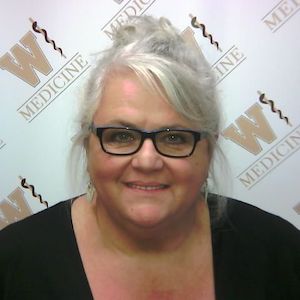
A dedicated role at the medical school’s Center for Clinical Research guides physicians, medical students and residents through the research process.
The research navigator position, which was established about four years ago, is designed to help people without research experience get started on a project, said Tom Blok, MD, the medical school’s Assistant Dean for Clinical Research.
Students and residents who are interested in highly competitive residencies and fellowships benefit by having research experience, Dr. Blok said. It demonstrates an ability to approach a problem, develop a research question about it and gather data to analyze. It also gives students and residents experience working the medical school’s Institutional Review Board, the entity that approves studies involving human subjects.
“Students and residents who may not necessarily have any experience in research can sometimes find the idea of how to get started rather daunting,” Dr. Blok said.
As the center’s research navigator, Daphne York organizes kickoff meetings that includes the entire team that will work on the study to brainstorm and come up with ways to carry out the research. This first meeting of up to a dozen people especially helps first-time researchers become familiar with the process and sometimes alerts them to rules and regulations they may not already know.
Dr. Blok said the medical school’s librarian staff can research what has been done in a particular area before, while the epidemiology and biostatistics teams are helpful in forming the research question to identify what kinds of data are needed to collect.
“What we were finding was that whole process was kind of complicated for people who had never done this before,” Dr. Blok said. “The concept of the research navigator was to identify a person who could be one-stop shopping to help people navigate that system. The goal of the research navigator isn’t to do the study writing, development and so forth, but to assist in that.”
York said she has helped organize 50 to 60 research projects within the last year.
“When you look at it on the surface it seems really frightening and complicated but when you break it down and have someone to help you navigate through it, it makes it so much easier and simpler,” York said.
York’s diverse background in research suits her well for the position. She spent 10 years as a clinical research project manager at Marshfield Clinic in Wisconsin, where she worked in cardiology and public health. Prior to joining WMed, York worked as a research project manager at the University of Notre Dame.
“I am available to help with any research needs,” York said. “If you have a question about something you’d like to do, I can get you in touch with the right people. I navigate researchers through the process. I can help them develop the protocol or whatever it is they need for research. If I don’t know I can help put them in contact with the people who do know.”
York said she especially can help students who may feel intimidated about starting research.
“We can help take the fear out of that because it’s really not difficult once you have someone guide you through it,” she said.
